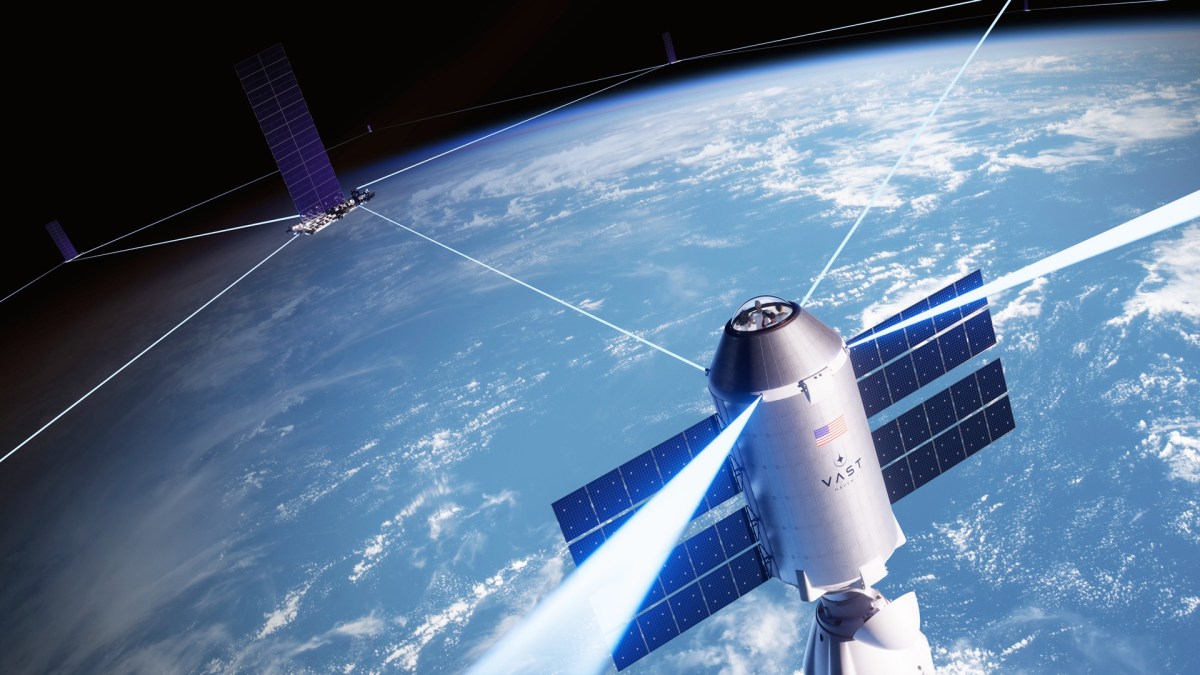COLORADO SPRINGS — Commercial space station developer Vast will use SpaceX’s Starlink constellation to provide broadband connectivity for its Haven-1 station launching next year.
Vast announced April 9 that it will install laser intersatellite link terminals on its Haven-1 station to enable communications with Starlink satellites. The agreement between Vast and SpaceX extends to future space stations Vast plans to develop.
Max Haot, chief executive of Vast, said in an interview during the 39th Space Symposium that his company will use terminals supplied by SpaceX. Gwynne Shotwell, president of SpaceX, announced at the Satellite 2024 conference March 19 that SpaceX would sell laser terminals it developed for Starlink to other customers, a product offering she dubbed “Plug ’n’ Plaser.”
Vast will install four such terminals on Haven-1. “It should give us full coverage,” he said, based on the orbit of Haven-1 and its relationship to the Starlink constellation. Those laser links would augment traditional radio-frequency communications with ground stations and through Inmarsat satellites.
The Starlink terminals will provide Haven-1 with up to one gigabit per second connectivity to and from the station. “There’s nothing that we can think of that’s going to use more than that,” he said, including requirements for crews and payloads as well as 20 cameras mounted inside and outside the station.
“You can open your laptop, iPad or iPhone and call your family, do a livestream for outreach or watch a movie if you want,” he said of the experience crews on Haven-1 would have. He argued it would be a competitive advantage for Vast over alternatives, like the “technically inferior” connectivity currently available on the International Space Station.
Vast announced Haven-1 last May, with a goal of launching the single-module station as soon as August 2025. Haven-1 will be able to accommodate four-person crews for short-duration missions, with a total stay time of 40 days. The station’s payloads can also be operated while the station is unoccupied.
Haot said that development of Haven-1 remains on schedule. The company, which had about 120 people around the time it announced the station, has grown to 350 employees. He projected the company reaching 650 employees by the end of the year and 800 by the time Haven-1 launches.
One change since the announcement of Haven-1 is a change from stainless steel to aluminum for the structure of the station. “We felt that it was going to be faster and much lower cost to do additional volume. It turned out to be a lot slower,” he said of stainless steel. The challenges with stainless steel included mass margins on the Falcon 9 rocket launching Haven-1 as well as specialized tooling needed to produce the components.
Vast starting studying aluminum last November and decided last month to switch to it. “Aluminum is a proven method and we were able to master it in-house really quickly,” he said. “We’re now back on track with our launch date.”
Vast has not announced any customers yet for Haven-1 but Haot said the company had many prospective customers in its pipeline, with a focus on sovereign clients, or international governments, with some private customers as well. “As we are showing progress to NASA and to everybody else, I think the level of credibility and interest keeps increasing.”
Vast does not have a contract from NASA’s Commercial Low Earth Orbit Destinations, or CLD, program, but does have an unfunded Space Act Agreement awarded last year that gives the company access to NASA expertise and data. The company is planning to bid on the next phase of the CLD program as well as future private astronaut missions to the ISS.
“The main reason we are doing it is training for our team and building our relationship with NASA,” Haot said of Vast’s plans to bid on the next ISS private astronaut mission opportunities NASA offers. “A space station builder can benefit from the ISS experience before you build the replacement for it, and I think that’s the way NASA sees it too.”
